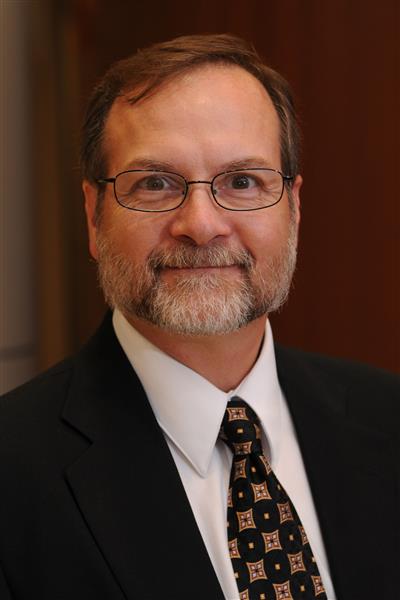
Randy R. Brutkiewicz, PhD
Professor of Microbiology & Immunology
- Phone
- (317) 274-7589
- Address
-
R2 302
950 W. Walnut St.
Indianapolis, IN - PubMed:
-

Bio
Randy R. Brutkiewicz earned his PhD degree from the University of Massachusetts Medical School and received postdoctoral training at the National Institutes of Health. He is a Professor of Microbiology and Immunology at Indiana University School of Medicine, with an NIH-funded laboratory studying innate immunity, immune evasion and signal transduction pathways.
He was the Associate Dean for Research and Graduate Studies at Indiana University School of Medicine from 2013 - 2017 and oversaw the IU School of Medicine Graduate Division, responsible for graduate and postdoctoral programming and oversight in the IU School of Medicine. An important professional development focus he initiated was the pursuit of nonacademic career paths for trainees.
From 2007 – 2013, Randy Brutkiewicz was an Assistant Dean in the IU School of Medicine Office of Faculty Affairs and Professional Development and a member of the AAMC Group on Faculty Affairs; in 2009, the Office of Faculty Affairs and Professional Development received the AAMC Women in Medicine Leadership Award. Dr. Brutkiewicz’s office was the first of its kind and focused exclusively on research faculty development. His office was responsible for the development, coordination, implementation and oversight of programs aimed at enhancing the development and success of tenure-track and non-tenure track research faculty, and research associates in the School of Medicine.
Key Publications
Brutkiewicz, R.R. Cell signaling pathways that regulate antigen presentation. J. Immunol. 197(8):2971-2979, 2016.
Liu, J., Brutkiewicz, R.R. TLR9 is indispensable for MR1-mediated bacterial antigen presentation in B cells. Immunology 152(2):232-242, 2017.
Brutkiewicz, R.R., Yunes-Medina, L., Liu, J. Immune evasion of the CD1d/NKT cell axis. Curr Opin. Immunol 52:87-92, 2018.
Liu, J., Gallo, R.M., Khan, M.A., Iyer, A.K., Kratzke, I.M., Brutkiewicz, R.R. JNK2 modulates the CD1d-dependent and -independent activation of iNKT cells. Eur. J. Immunol. 49:255-265, 2019.
Raj Priya, Brutkiewicz, R.R. Brain astrocytes and microglia express functional MR1 molecules that present microbial antigens to mucosal-associated invariant T (MAIT) cells. J. Neuroimmunol. (in press, 2020).
Wyatt-Johnson, S.K., Brutkiewicz, R.R. The complexity of microglial interactions with innate and adaptive immune cells in Alzheimer’s disease. Front Aging Neurosci (in press, 2020).
| Year | Degree | Institution |
|---|---|---|
| 1994 | PhD | University of Massachusetts |
| 1981 | BS | Michigan State University |
The Brutkiewicz laboratory studies immune evasion by viruses and tumors, the regulation of antigen presentation by various signal transduction pathways, and the role of innate and adaptive immune responses in CNS injuries and disorders.
In our laboratory, we study the CD1d and MR1 molecules, cell surface glycoproteins that are structurally related to major histocompatibility complex (MHC) class I molecules. These molecules present lipid antigens or microbially-derived vitamin B metabolites to subpopulations of innate T cells called NKT and MAIT cells, respectively. Efforts have focused on how signal transduction pathways can regulate antigen presentation in both innate (i.e., CD1d and MR1) and adaptive (e.g., MHC class I & II) immune responses. We have found that CD1d-mediated antigen presentation is reciprocally-regulated by the mitogen-activated protein kinases (MAPK), p38 and ERK1/2. This MAPK dichotomy is very evident following a virus infection of antigen presenting cells. Further, we have recently reported that the protein kinase C δ pathway is very critical in the control of antigen presentation by both CD1d and MHC class II (but not MHC class I) molecules. Increasing our understanding of signal transduction pathway control of antigen presentation will be of great help in the development of more effective vaccines against viruses and very useful in the treatment of various hematopoietic tumors, in which the reciprocal regulation of antigen presentation by MAPK is also observed. Ongoing studies are analyzing additional mechanisms by which some tumors can evade this arm of the host's innate antitumor defenses, including those signal transduction pathways that play an important role in such activity.
Most recently, we have added studies of CNS injuries (e.g., spinal cord injury and TBI) and neurodegenerative diseases (e.g., Alzheimer's disease) and the contribution of the immune system in helping or harming the host's healing process.
Liu J; Gallo RM; Duffy C; Brutkiewicz RR; Viral immunology 2016 Jun 21
Webb TJ; Carey GB; East JE; Sun W; Bollino DR; Kimball AS; Brutkiewicz RR; Pathogens and disease 2016 Jun 12
Desc: Trustees' Teaching Award
Scope: University
Date: 2010-05-01